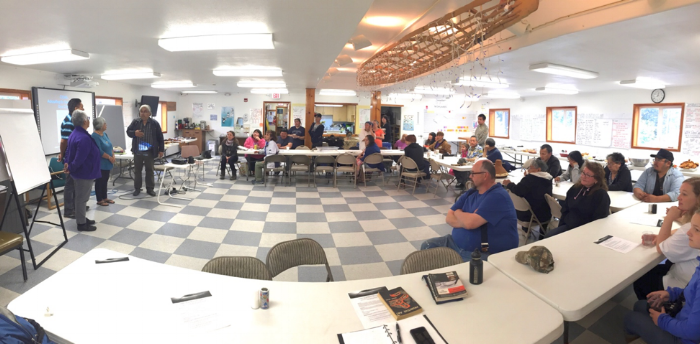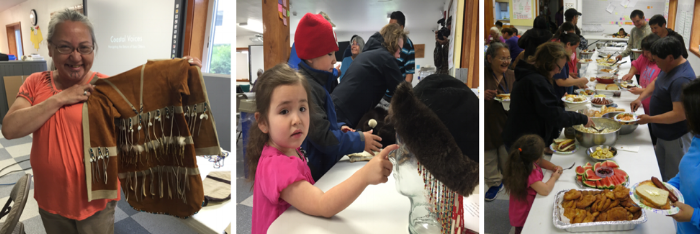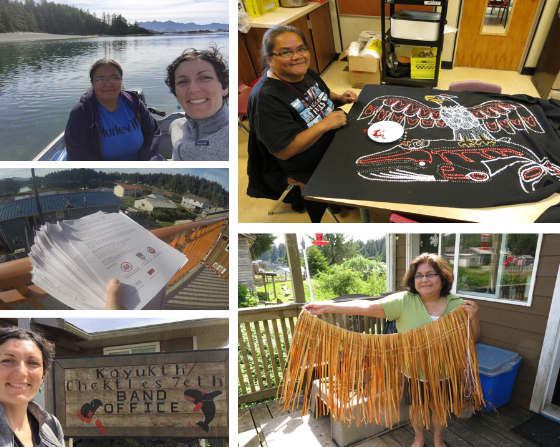We just returned from an incredible journey to south-central Alaska to visit two amazing Sugpiaq communities – Port Graham and Nanwalek. We went to hear some different perspectives from people who have been living with sea otters in their territory for 60+ years and to share the stories and data Coastal Voices had amassed from our 2014 workshop, book chapter and field research.
Again we were fortunate to have great local people co-host the workshop with us! Tim Malchoff (below) from Port Graham is working on developing education content around traditional hunting practices, and he helped us develop the workshop content and arrange many of the local logistics. He was pleased that we were doing this in the community as it gave him an opportunity to acquire some information and content for the toolkits he is developing.
After talking and meeting with many people in the community, the days of our workshops arrived. Here is the great turn out we had in Port Graham. In the photo below, Chief Pat Norman welcomes the BC Chiefs and the Coastal Voices team to his community and thanks the community for coming.
After a wonderful workshop in Port Graham and conducting a bunch of surveys and interviews, we made our way over to the nearby community of Nanwalek. Here we hosted another workshop the following day, with an equally great turn out, wonderful stories, great discussion, DELICIOUS traditional food, and an amazing performance by the local youth dancers!
Following the workshop in Nanwalek, we did a bunch more survey interviews with community members and once again, were fortunate to be toured around and invited to many people’s homes to share tea, stories, knowledge and laughs! Time flew and it was soon time to go. We returned to Homer where we gave a public talk at the Kachemak Bay National Estuarine Research Reserve.
The next day we made our way back to Vancouver, full of good stories and information. We look forward to sharing this information, along with photos and videos we documented, back with the community in the coming years! Thanks again!



















